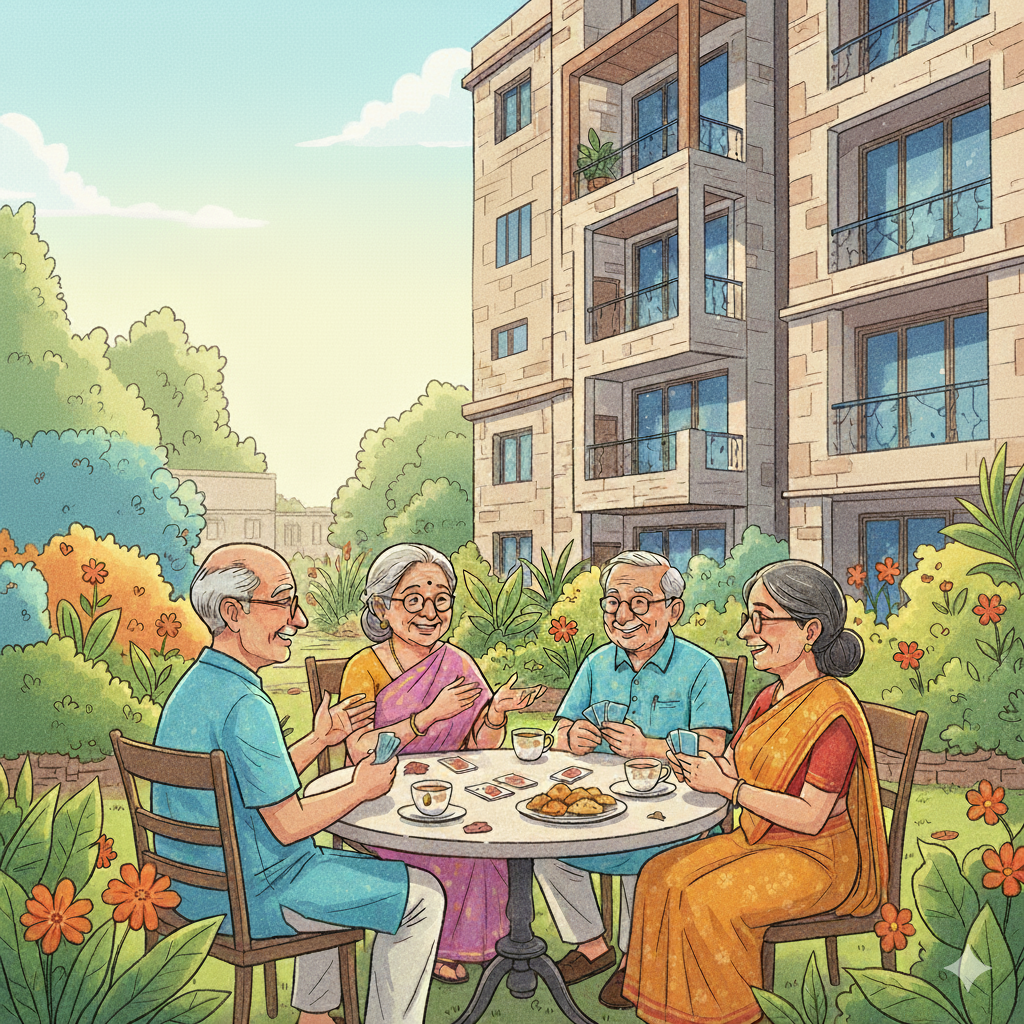
Part 1: The Foundations of Senior Care – Real Estate Players in Focus
Imagine waking up in a sunlit apartment overlooking green lawns, with the aroma of fresh breakfast wafting from a communal dining hall. That's the allure many seniors seek: a place that feels like home but with built-in conveniences. As India's senior living market expands, the real estate players dominate, holding the largest share. But is this model right for you?
Real estate players like Ashiana Group, Paranjape's Athashri, and Antara from Max India, as well as emerging ones such as Ikaria from Adani and Columbia Pacific Communities, come from builder backgrounds. They leverage land banks to create upscale communities in desirable locations, often in cities like Pune, Bangalore, Chennai, and Dehradun. For instance, Paranjape recently launched a 500-unit affordable senior housing project in Pune in 2025, while Antara is investing Rs 500 crore in expansions.
Their focus? Selling or leasing living space with senior-friendly amenities like a garden, security, maintenance, dining, on-site clinics, and festival celebrations.
Strengths shine for active, independent seniors: Ownership builds equity (units appreciate), and communities foster social bonds through events and collaborations with healthcare providers for emergencies. However, drawbacks emerge as needs evolve. If you shift to dependent living, needing help with daily activities, the support is often "on-demand," meaning you arrange aides via agencies, which can burden families. As an owner, you're responsible for the interiors, repairs, and chores, and regulations limit buyers (typically those over 55) and inheritance (units can't easily pass to children under 55). Liquidity is low; your investment is tied up without returns. If health declines, vulnerability increases, as core expertise lies in real estate, not care.
Thought-provoking questions:
-
Are you financially ready to invest upfront (Rs 50-80 lakhs or more) for a property that may appreciate but offers limited liquidity?
-
How do you envision your health in 10 years?
-
Independent enough to manage "on-demand" services, or needing built-in support?
-
Does the idea of owning excite you, or does it feel like another responsibility?
In my experience at Utsavcare, while these models excel in infrastructure, they often partner with professional care operators later for deeper services, highlighting a gap that pure service-focused models fill seamlessly.
Summary:
-
Real estate players lead with premium infrastructure and community vibes, ideal for active seniors.
-
Strengths: Ownership equity, social activities, Senior Friendly infrastructure.
-
Weaknesses: Limited care for dependent stages, high upfront costs, and management burdens of day-to-day life.
-
Best for: Financially secure, independent elders in urban areas seeking long-term investment.
Stay tuned for Part 2, where we dive into healthcare providers and NGO-driven options.




No comments yet. Be the first to comment!